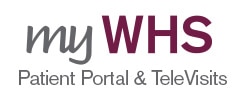 Dr. Konstantinos Papadopoulos is currently a second year Family Medicine resident at the Washington Health System. He grew up around Chicago, attended Loyola University of Chicago with a double major in cell biology and psychology followed by a Master of Research in infection and immunobiology at the University of Glasgow. He then went to Medical School at the University of London. He recently had his first child, a daughter, and loves spending time with his family, friends, exercising, and theater.
Dr. Konstantinos Papadopoulos is currently a second year Family Medicine resident at the Washington Health System. He grew up around Chicago, attended Loyola University of Chicago with a double major in cell biology and psychology followed by a Master of Research in infection and immunobiology at the University of Glasgow. He then went to Medical School at the University of London. He recently had his first child, a daughter, and loves spending time with his family, friends, exercising, and theater.
Lung Cancer Awareness Month
Did you know November is Lung Cancer Awareness month? Did you also know that up to 90% of lung cancer deaths are attributed to smoking? Even if you don’t smoke and live with or around a smoker, your risk of developing lung cancer is significantly increased. The benefits of smoking cessation are endless. Your risk of heart disease is cut in half at one year and your risk of stroke is the same as a nonsmoker at five years. Not only do you have this long term improvements, it will quickly help resolve a persistent cough or feeling short of breath after doing trivial tasks like doing the dishes.
Talk to your primary care doctor today about smoking cessation, there are many options including patches, pills, and gum to help you quit if you don’t want to just stop “cold turkey”. Also, you can discuss this with a loved one to help them quit as well. With the right motivation and mindset, ANYBODY can overcome this addiction.
If you’ve smoked for over 30 years and are between the ages of 55 and 80, an annual low-dose CT scan is recommended for health screening. This is an image of your lungs to see if there are any suspicious findings in in the lungs themselves to potentially catch cancer in its very early stages. The image is done with a “low dose” amount of radiation, hence the name of the test. Visit cancer.org or talk to your PCP to stay up to date with the latest guidelines.


